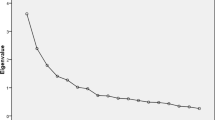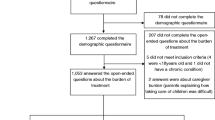Abstract
Chinese medicine (CM) practitioners usually base clinical decisions on their own experience and judgment. Although western medicine is now much dependent on objective measurements by medical equipment, in some fields such as in psychology and psychiatry, and in taking clinical information from history and physical examination, subjective measurements are still used. However, the difference is the use of standard data collection procedure. When a CM practitioner bases their collection of clinical information on a theoretical goal, information that fits one’s mind set is of concern and that does not fit one’s aim is subconsciously screened out. With this practice, the clinical information is biased toward a set of diseases and related zhengs in mind. The standardization procedures for clinical data collection can be applied to CM to solve this problem. This chapter will present scientific methods to make standard data collection procedures such as Delphi technique in creating a standard data collection procedure and the tests of its reliability. Objective domain-based technique for questionnaire and checklist design will be discussed. The essential steps in these procedures to ensure objective measurement are the independency of theories and expert opinions and the application of scientific validation methods of the resulting data collection forms. When the results of the studies using the discussed methods confirm the traditional theories, the theoretical foundation of such the disease or zheng in CM is confirmed. When studies consistently disagree with the traditional theories, objective modification of theories makes CM moving forward and gets acceptance by western medicine.
Access this chapter
Tax calculation will be finalised at checkout
Purchases are for personal use only
Similar content being viewed by others
References
Tognotti E. The dawn of medical microbiology: germ hunters and the discovery of the cause of cholera. J Med Microbial. 2011:60(Pt 4):555–8. doi:10.1099/jmn.0.025700-0.
Lippi D, Gotuzzo E. The greatest steps towards the discovery of Vibrio cholerae. Clin Microbiol Infect. 2014;20(3):191–5. doi:10.1111/1469-0691.12390.
Toledo-Pereyra LH. Louis Pasteur surgical revolution. J Invest Slug. 2009;22(2):82–7. doi:10.1080/08941930902794729.
Blevins SM, Bronze MS. Robert Koch and the ‘golden age’ of bacteriology. Int J Infect Dis. 2010;14(9):e744–51. doi:10.1016/j.ijid.2009.12.003.
Toledo-Pereyra LH. Joseph Lister’s surgical revolution. J Invest Surg. 2010;23(5):241–3. doi:10.3109/08941939.2010.520574.
Moore AP, Bryant EC, Olivier GWJ. Development and use of standardised data collection tools to support and inform musculoskeletal practice. Man Ther. 2012;17(6):489–96. doi:10.1016/j.math.2012.07.008.
Dalkey NC, Helmer O. An experimental application of the Delphi method to the use of experts. Manag Sci. 1963;9(3):458–67.
Hsu C-C, Sandford BA. The Delphi technique: making sense of consensus. Pract Assess Res Eval. 2007;12(10):1–7.
Miller LE. Determining what could/should be: The Delphi technique and its application. Paper presented at the meeting of the 2006 annual meeting of the Mid-Western Educational Research Association, Columbus, Ohio. 2006.
Yang X, Chongsuvivatwong V. McNeil E, Ye J, Ouyang X, Yang E, Srip lung H. Developing a diagnostic checklist of traditional Chinese medicine symptoms and signs for psoriasis: a Delphi study. Chin Med. 2013;8(1):10. doi:10.1186/1749-8546-8-10.
Witt CM, Aickin M, Cherkin D, Che CT, Elder C, Flower A, et al. Effectiveness guidance document (EGD) for Chinese medicine trials: a consensus document. Trials. 2014;15:169. doi:10.1186/1745-6215-15-169.
Schmutz J, Eppich WJ, Hoffmann F, Heimberg E, Manser T. Five steps to develop checklists for evaluating clinical performance: an integrative approach. Acad Med. 2014;89(7):996–1005. doi:10.1097/ACM.0000000000000289.
Mullen PM. Delphi: myths and reality. J Health Organ Manag. 2003;17(1):37–52.
Pietersma S, de Vries M, van den Akker-van Made ME. Domains of quality of life: results of a three-stage Delphi consensus procedure among patients, family of patients, clinicians, scientists and the general public. Qual Life Res. 2014;23(5):1543–56. doi:10.1007/s11136-013-0578-3.
Shi N, Zhong LL, Han X, Ziea IC, Ng B, Bian Z, Lu A. Enhanced evidence-based Chinese medicine clinical practice guidelines in Hong Kong: a study protocol for three common diseases. Evid Based Complement Altern Med. 2015;2015:482706. doi:10.1155/2015/482706.
Custer RL, Scarcella JA, Stewart BR. The modified Delphi technique: a rotational modification. J Vocat Tee Educ. 1999;15(2):1–10.
Lindsay B, Clogs CC, Grego J. Semiparametric estimation in the Rasch model and related exponential response models, including a simple latent class model for item analysis. J Am Stat Assoc. 1991;86(413):96–107.
Yang X, Chongsuvivatwong V. Lerkiatbundit S, Ye J, Ouyang X, Yang E, Sriplung H. Identifying the Zheng in psoriatic patients based on latent class analysis of raditional Chinese medicine symptoms and signs. Chin Med. 2014;9(1):1. doi:10.1186/1749-8546-9-1.
Zhang NL, Yuan S, Chen T, Wang Y. Latent tree models and diagnosis in traditional Chinese medicine. Artif Intell Med. 2008;42(3):229–45.
Zhang NL, Yuan S, Chen T, Wang Y. Statistical validation of traditional chinese medicine theories. J Ahem Complement Med. 2008;14(5):583–7. doi:10.1089/acm.2007.7019.
Everitt BS. Cluster analysis. Chichester, West Sussex, U.K.: Wiley; 2011.
Tao F, Lu H, Oppert JM, Basdevant A. MENG may contribute to obesity phenotypes based on body composition: a pilot study on the traditional Chinese medicine approach. Evid Based Complement Altemat Med. 2014;2014:580803. doi:10.1155/2014/580803.
Pang J, Yang M, Fu J, Zhao X, van Wijk E, Wang M, Liu Y, Zhou X, Fan H, Han J. Classification of Chinese herbs based on the cluster analysis of delayed luminescence. Luminescence. 2015. doi:10.1155/2014/580803.
Chen HY, Lin YH, Hu S, Yang SH, Chen JL, Chen YC. Identifying Chinese herbal medicine network for eczema: implications from a nationwide prescription database. Evid Based Complement Altemat Med. 2015;2015:347164. doi:10.1155/2015/347164.
Author information
Authors and Affiliations
Corresponding author
Editor information
Editors and Affiliations
Rights and permissions
Copyright information
© 2016 Springer Science+Business Media Singapore
About this chapter
Cite this chapter
Sriplung, H., Yang, X. (2016). A Need for Standard Data Collection Procedure in Studies on Traditional Chinese Medicine. In: Leung, Sw., Hu, H. (eds) Evidence-based Research Methods for Chinese Medicine. Springer, Singapore. https://doi.org/10.1007/978-981-10-2290-6_6
Download citation
DOI: https://doi.org/10.1007/978-981-10-2290-6_6
Published:
Publisher Name: Springer, Singapore
Print ISBN: 978-981-10-2289-0
Online ISBN: 978-981-10-2290-6
eBook Packages: MedicineMedicine (R0)




